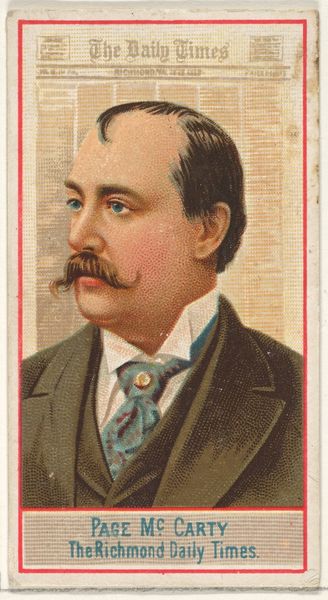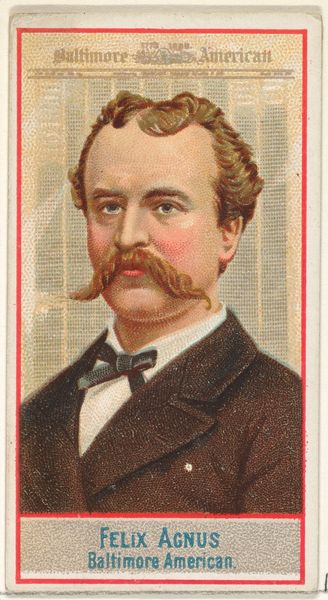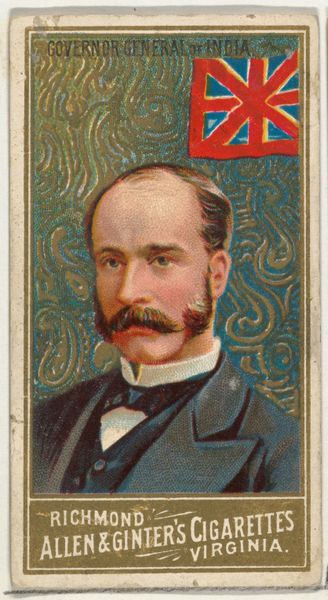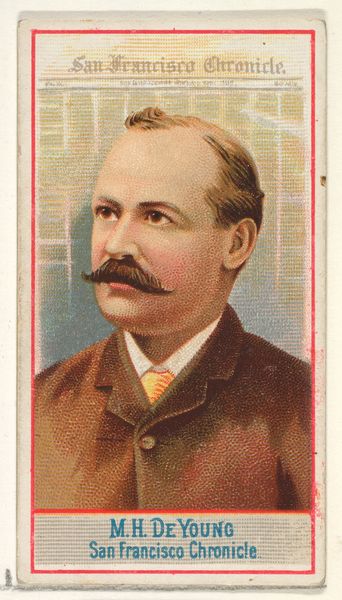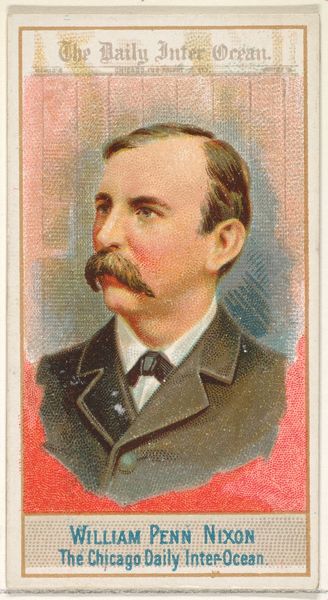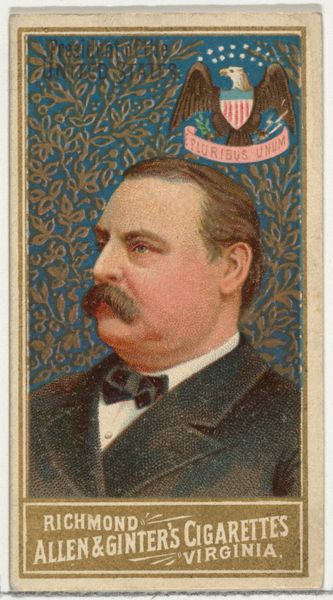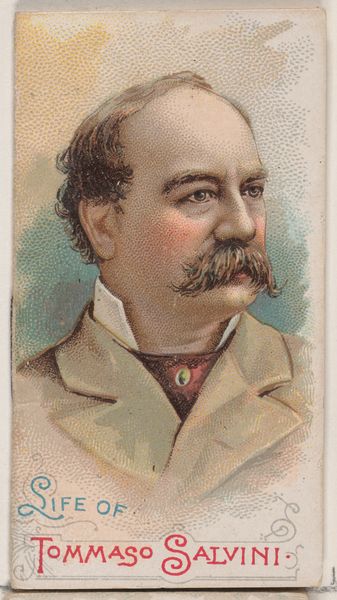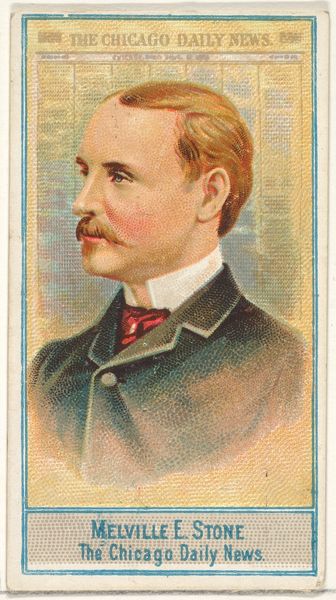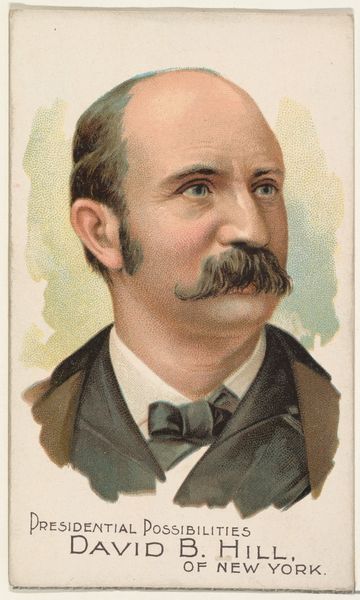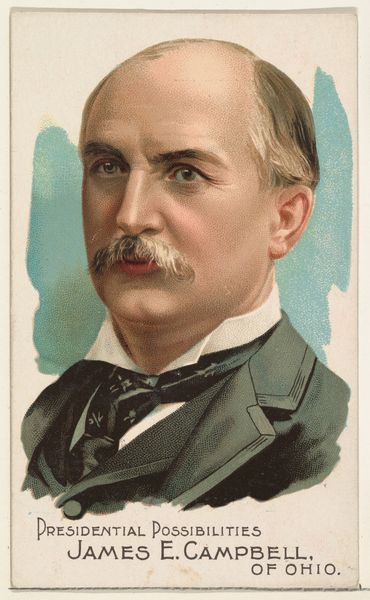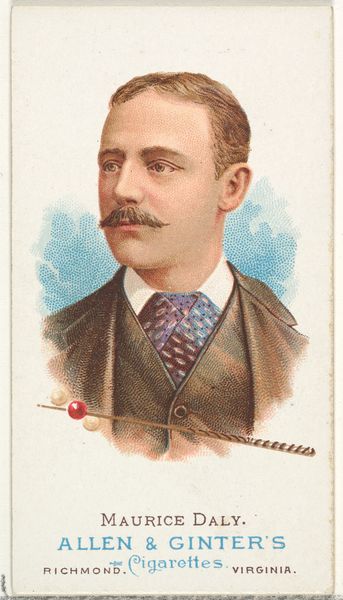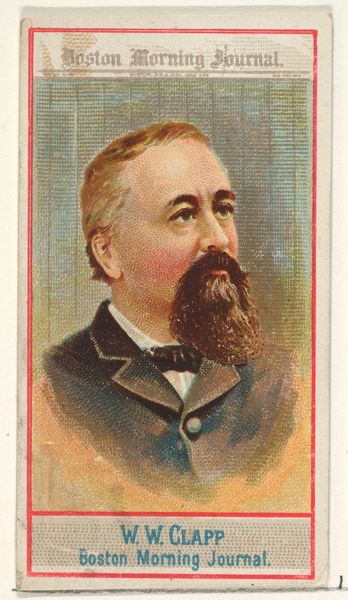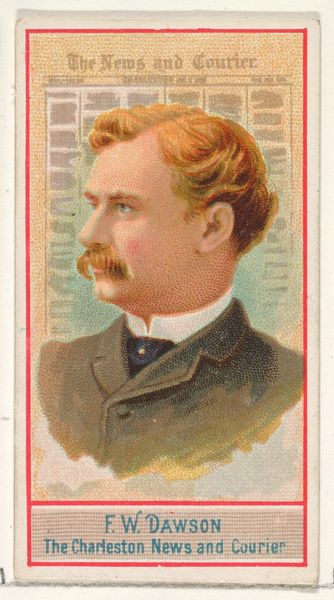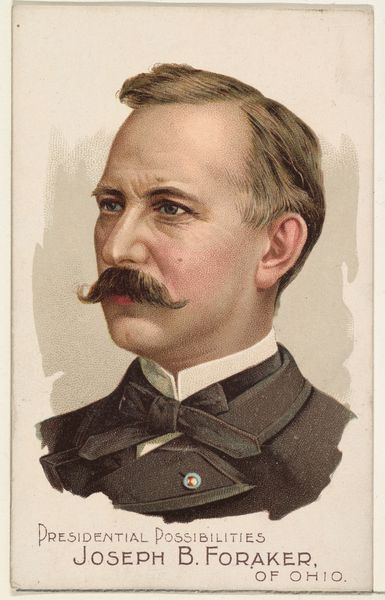
John R. McLean, The Cincinnati Enquirer, from the American Editors series (N1) for Allen & Ginter Cigarettes Brands 1887
0:00
0:00
drawing, print, etching, intaglio, graphite
#
portrait
#
drawing
#
pictorialism
# print
#
etching
#
caricature
#
intaglio
#
caricature
#
men
#
graphite
#
portrait drawing
#
genre-painting
#
academic-art
#
portrait art
Dimensions: Sheet: 2 3/4 x 1 1/2 in. (7 x 3.8 cm)
Copyright: Public Domain
Editor: We’re looking at “John R. McLean, The Cincinnati Enquirer,” a print from 1887 by Allen & Ginter as part of their American Editors series. It’s a small, almost trading-card size portrait. The rosy cheeks give him an almost comical appearance, even though it seems to be trying for a serious tone. What’s your read on it? Curator: Well, first, it's fascinating to see how media representation intersects with consumer culture. This portrait, circulated through cigarette brands, transforms a powerful editor into a collectible object. How does this relate to ideas about the public role of journalism and power? Editor: It definitely changes how you think about his image. Like he’s not just an editor, he’s a commodity? Curator: Exactly! This commercial use normalizes his image. It blurs the lines between information, celebrity, and product endorsement. Also, consider the selection of “American Editors” for this series. What did it signify to elevate these individuals in this way, connecting them to notions of national identity and readership? Who were they marketing this to? Editor: That’s interesting! It positions these editors almost like baseball stars would be marketed now. Was this type of portraiture common for media figures at the time? Curator: Yes and no. Portraiture was common, signifying status, but the method of dissemination, in tobacco products, speaks to the evolving methods of media culture. The caricature style humanizes him. Do you think this portrait aimed to flatter or satirize him, considering his societal position? Editor: I still think those rosy cheeks make it veer into satire, a little. I hadn't really considered the commercial aspect shaping how the public perceived these figures. Curator: And I found your initial impression very insightful! This exploration shows us how deeply art is embedded within social and commercial networks. Editor: Totally, seeing how such a small portrait encapsulates so much about media culture is wild.
Comments
No comments
Be the first to comment and join the conversation on the ultimate creative platform.
